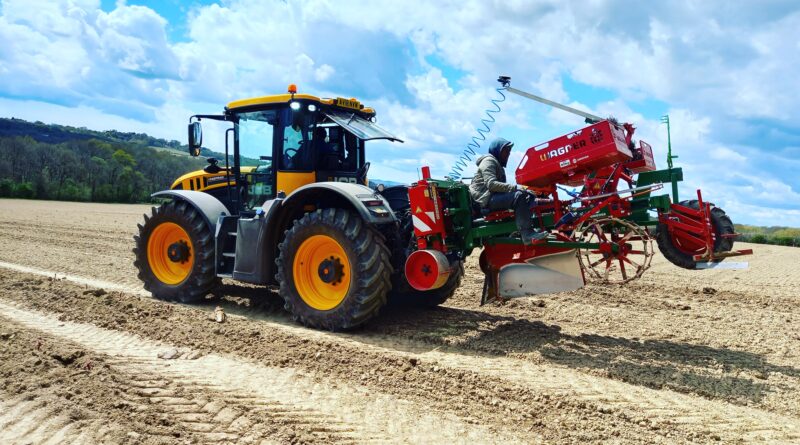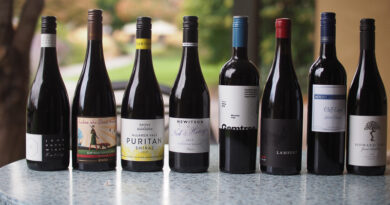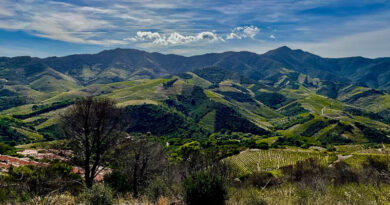The Business of English Wine (1): James Dodson, Vine-Works
In the first interview of our series on the business of English wine, Lisse Garnett interviews James Dodson of Vine-Works, the man responsible for planting over 1000 acres of England’s green and pleasant land..
Canadian James Dodson started Vine-Works in 2006 while studying winemaking at Plumpton College. His student year featured luminaries as bright as Charlie Holland (now CEO of Gusbourne) and Emma Rice (Head Winemaker at Hattingley Valley). Prior to wine, James had a successful career as an archaeologist on digs to unearth Minoan Crete, prehistoric Ghana, West Africa, a Hellenistic temple on Lesbos and native remains in Canada. The work was precise, detailed and meticulous and involved skills useful to the viticultural universe: comprehending soils and structural analysis being a large part of any dig; surveying topography came in handy too. Having contracted malaria in Africa in 1996, he came to the UK to recuperate and ended up working in an Edinburgh branch of Oddbins. He even became Fine Wine Manager for Scotland. Following several hard years in retail he felt the need to get filthy again and heeded the Plumpton BSc in Oenology call.
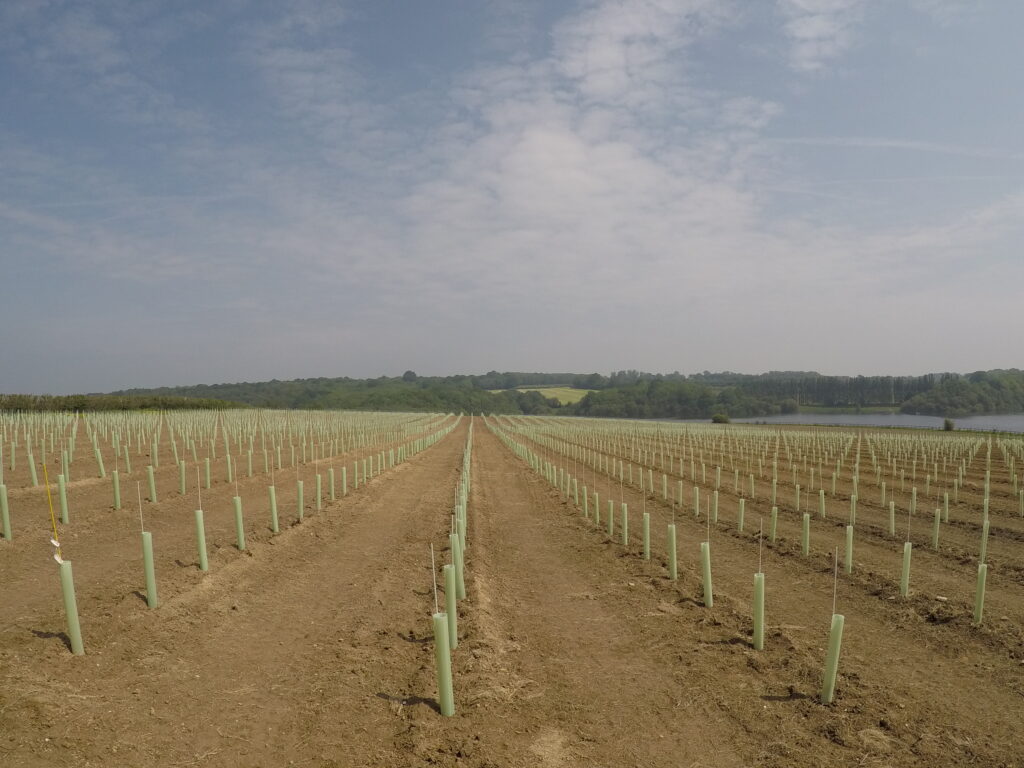
Vine-Works began small – James and his fellow Plumptonite mate John Seccombe (a South African who now runs boutique winery Thorne and Daughters) worked part time for Ridgeview and others trellising and doing general vineyard maintenance. The business grew, and John left for South Africa but Vine-Works continued to expand. Strictly focused back then on the establishment of new vineyards, James did not expect it to survive recession but actually it thrived. Vineyard management became another string to an increasing repertoire and he joined forces with Darcy Gander his former business partner in 2010. In January of 2021 they had over a hundred employees. That number has been reduced by a struggle to find labour in a post EU Covid-sullied world.
Today Vine-Works manage around 70 UK vineyards and have established more than a hundred. Their turnover is well north of 4 million sterling and they’ve probably planted over 1000 acres of the UK with vines. Billing themselves as a one-stop vineyard shop, they offer a turnkey approach to every aspect of vineyard establishment, management and production including the winemaking itself via a network of able consultants.
Lisse Garnett (LG): Who are your clients?
James Dodson (JD): We have all sorts of clients but there are three main scenarios. The wealthy London individual who wishes to add a vineyard to his country house – typically that would involve the turnkey approach, from planning to developing to managing the vineyard and selling on the fruit. Then there is the farmer seeking to diversify and those that come in wanting to start a business from scratch.
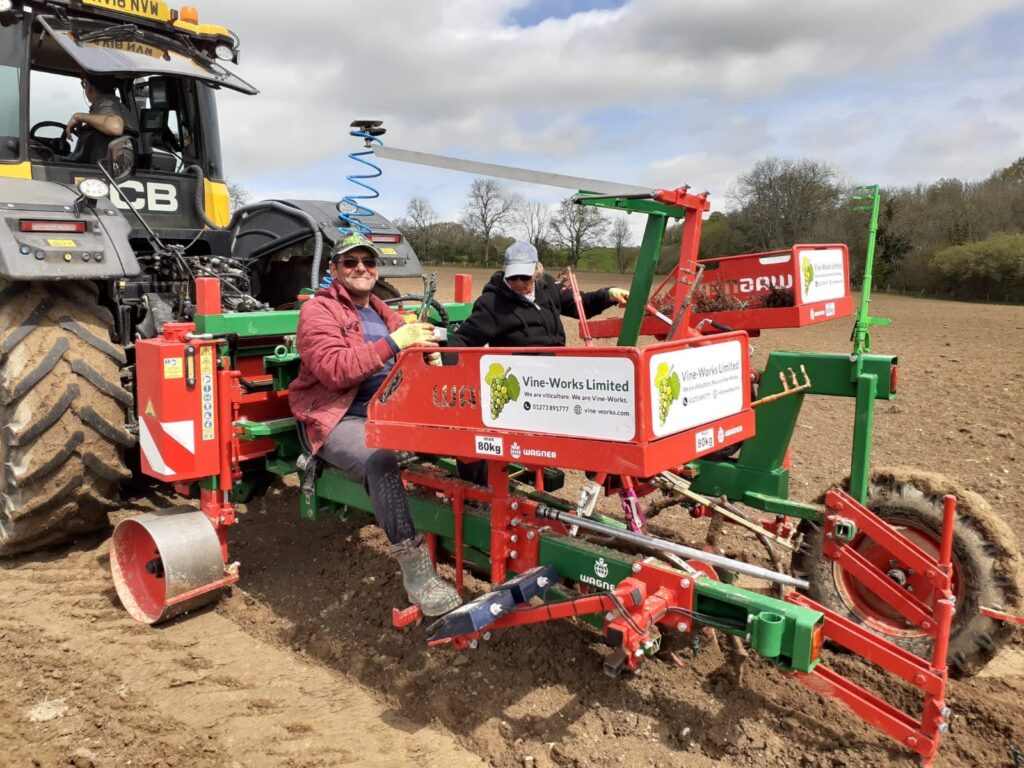
LG: Where do you start?
JD: We need to work backwards from where they want to be in ten years. We ask what style of wine they are interested in, what’s good for the market, the site itself will also dictate what sort of variety is going to be the best option. We always design the vine around the site. We gather all of this information and have a very serious chat about the trials and tribulations of owning a vineyard, realistic planning on labour and all that is involved including costs. Then we build a business plan around it.
LG: Is the process the same for existing farmers?
JD: We are now seeing a lot of farmers diversifying which involves us going in and assessing the land but we will also look at ten year contracts for the fruit. So before we plant a vine or purchase any kit we will look for a contract with an existing grower or winery that is looking to expand so as to secure a market. Most wineries have planted up all the land available to them and are not in a position to buy more land so they would rather get a contract with a grower who will grow it for them. We will initiate a ten year contract for that grower which will give him the confidence to put in the vines.
With these contracts there is usually a break clause after five years because four of those initial years are not productive. The five year break in a ten year deal is most likely structured around grape prices, to allow the farmer to take advantage of any rises and also to allow for the wineries to renegotiate price should there be a fall. The contract is good for the farmer because it allows a stable projected income of say £2000 a ton over ten years. A stable contract usually means that they don’t have to go through the ups and down of market fluctuation, they will take a bit of a hit on the grape prices but this allows the grower to plan ahead. This year is exceptional.
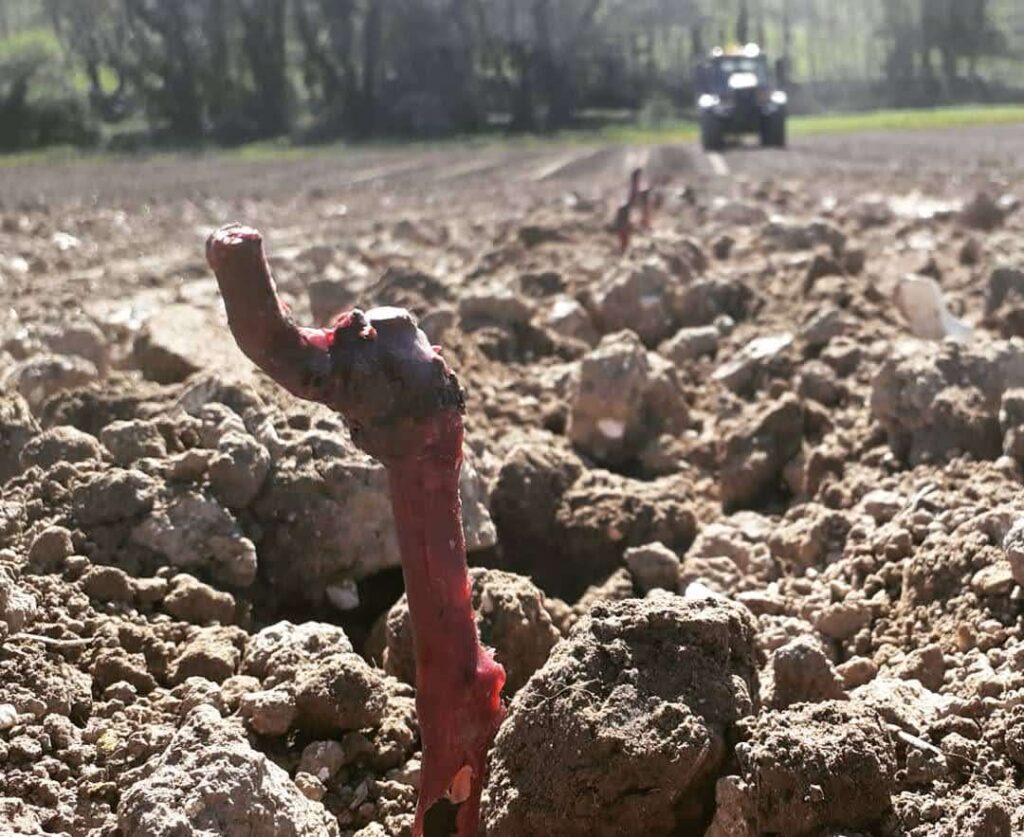
LG: We’ve been told of huge hikes in the price of UK grapes, what’s the current situation?
JD: At this point in time we are seeing massive fluctuations in the prices of grapes. Last year Bacchus was going for about £1800; this year people are paying about £3000. We are in a situation where most places are fifty percent down so any free grapes available are not even hitting the market. The only way to get a supply is to offer someone an enticingly huge wad of cash. We do a lot of fruit brokering, I normally buy and sell about 350 tonnes a year but this is the very first year where I’ve organised maybe 60 tonnes, I can’t find a single grape anywhere.’
LG: How is the 2021 harvest looking?
JD: ‘Appalling weather during 2021 means harvest is about two and a half weeks behind schedule. This causes big problems as we drift into October and the even wetter weather that it traditionally brings. The ripening potential will most likely decrease the further into October we go.
LG: Still English wine is seriously fashionable at the moment. Do you think still wines are the future for English wine?
JD: ‘2021 is not a still year; it will be very challenging to make a still wine this year. Last year was fantastic for English still wine and 2018 even better. I think still wines are very exciting but we need to really look at what is sustainable in this country and I think PIWIs have a role to play. Chardonnay, Meunier and Pinot Noir are great for sparkling but you can’t make a still Pinot Noir or a Chardonnay out of it every year. If we are going to go down the still road we have got to start looking at potential and there are some great PIWIs. Pinot Gris too is a bit of a challenge but you can make a still wine out of it most years and if not it’s great for sparkling. Bacchus is really England’s grape right now and there are others out there I think we can do so much better with.
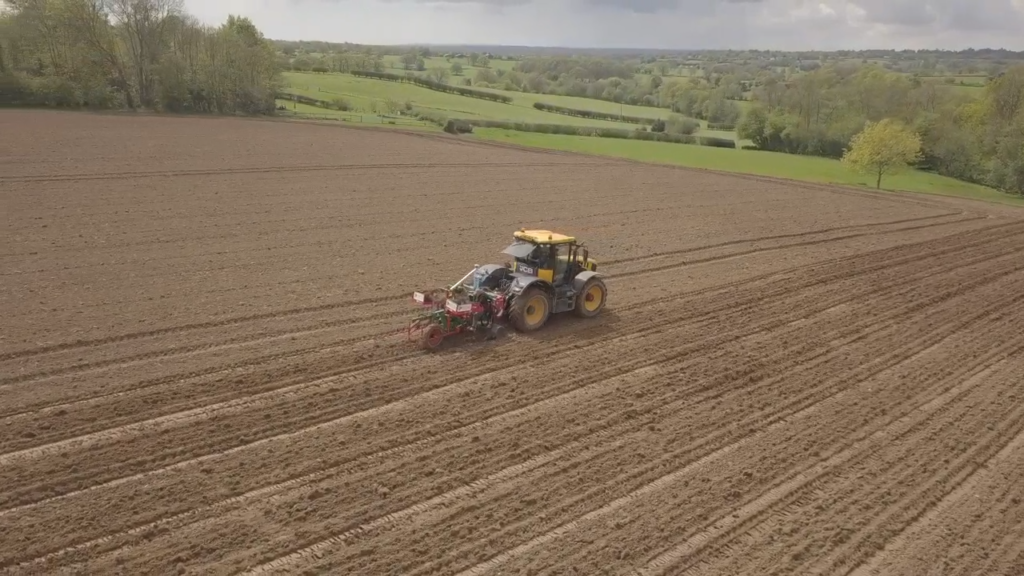
LG: So where do you think the English wine industry should be heading?
JD: I don’t think the English Wine industry can continue to do what it is doing because the cost of it is going through the roof. Seventeen pounds is a lot to pay for a mediocre Pinot Noir, when you can find something palatable on the bottom shelf at Tesco for a fiver from the South of France. Unless we bring economic viability back to the vineyard in terms of less spraying, less maintenance, less labour and more mechanisation – unless we start controlling these costs we are never going to be able to produce a bottle of wine at a price that compares to the rest of the world. We need to improve quality and reduce costs, that requires experimentation with new varieties and PIWIs. Seyval Blanc has been around for 50 or 60 years and is a PIWI so it can be done.
What is a PIWI?
PIWIs are disease resistant crosses, involving Vitis vinifera varieties and American or Asian vines that carry resistance genes against downy and powdery mildew. This means that instead of spraying ten times a year they might only need one or two sprays. This can make a huge saving for the growers and ultimately bring down bottle prices, as well as being good for the environment. If you look at a vineyard that has PIWIs planted in the UK the difference is immediately apparent: they are lush, green, beautiful, healthy when all about is hit with downy mildew but they are a potentially hard sell to the public.
LG: So is the current UK model sustainable?
JD: ‘I think its unsustainable to continue putting only sparkling grapes in the ground. Charmat is taking off now and we need to plant vineyards specifically for Charmat; thus far these are being made with bought fruit. We are telling clients to spread their risk, the market on 100% sparkling is pretty much cornered.’
LG: How has Brexit affected business?
JD: Today vines are still created to order in mainland Europe and must be shipped to the UK. Before Brexit you could call up the nursery, they’d send you the vines and you’d put them in the ground, now we’ve had to become a registered vine importer. There are only five or six of us, people can apply to do it but it’s a hell of a process. They now have to generate plant passports, check biosecurity, make sure the plants have the right certificate, it’s a massive paper trail now.
LG: Has labour been affected?
JD: We are 40% down right now on labour within the entire industry. There are three and four of us that provide labour to the vineyards. Agricultural labour is now licensed through only a few providers who serve the entire agricultural industry. This means that we need to buy in labour from them; it simply isn’t there, not least because of Covid. We also have our own workforce who we have worked with for ten years whom we have on landed immigrant status that at least allows them to come back and forth but we cannot grow that labour force like we used to be able to do. The Government has given four large agencies a monopoly on labour and that has caused a huge bottleneck. The only way to get past this is mechanisation. Local labourers are not seemingly prepared to work consistently for a month at short notice in the way that foreign labour is.
LG: How much does it now cost to plant a hectare of vines?
JD: This year is a unique year and everything is changing rapidly, metal prices are rising exponentially. Last year we were able to quote and average £25-28 000 per hectare for a turnkey vineyard. Going forward we can only quote for up until getting in the vines and planting as that price is quite stable. The trellis metal work cost has already doubled and for this reason we cannot be sure where the prices will be next year. That said we are hoping that price will come down and stabilise. We have had to look for products the world over to try and find the right price.
LG: Where do you see the future trends?
JD: For all, this it is a really exciting time in the industry and anything is possible. Things have changed completely in the last five years. We have got people in London who are buying grapes, sending them off to the contract winemaker then getting the resulting wine delivered to them in London and they haven’t even left their chair!

James Dodson. Also a huge paragliding nut who dreams of flying over every vineyard he has ever planted.

